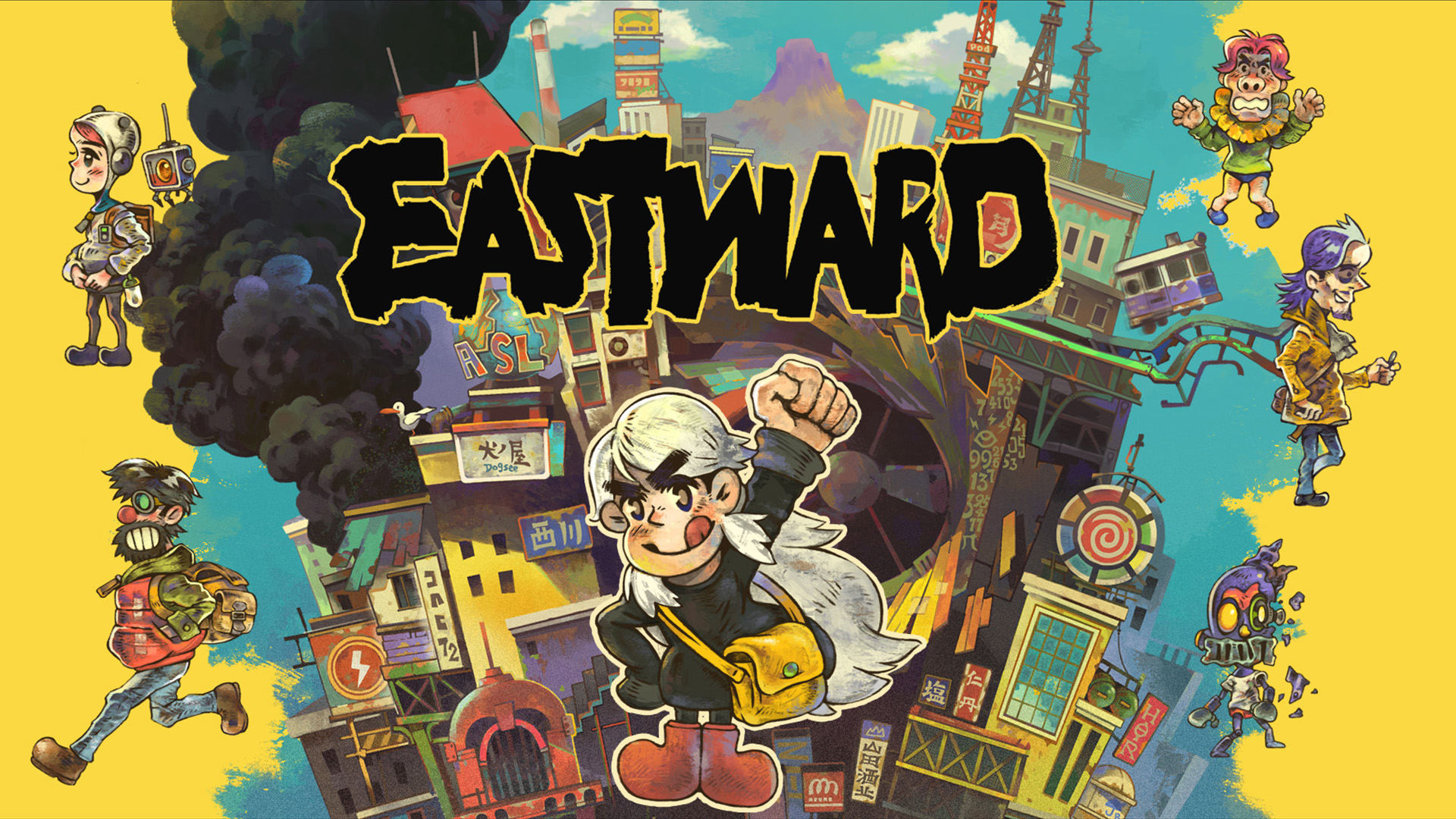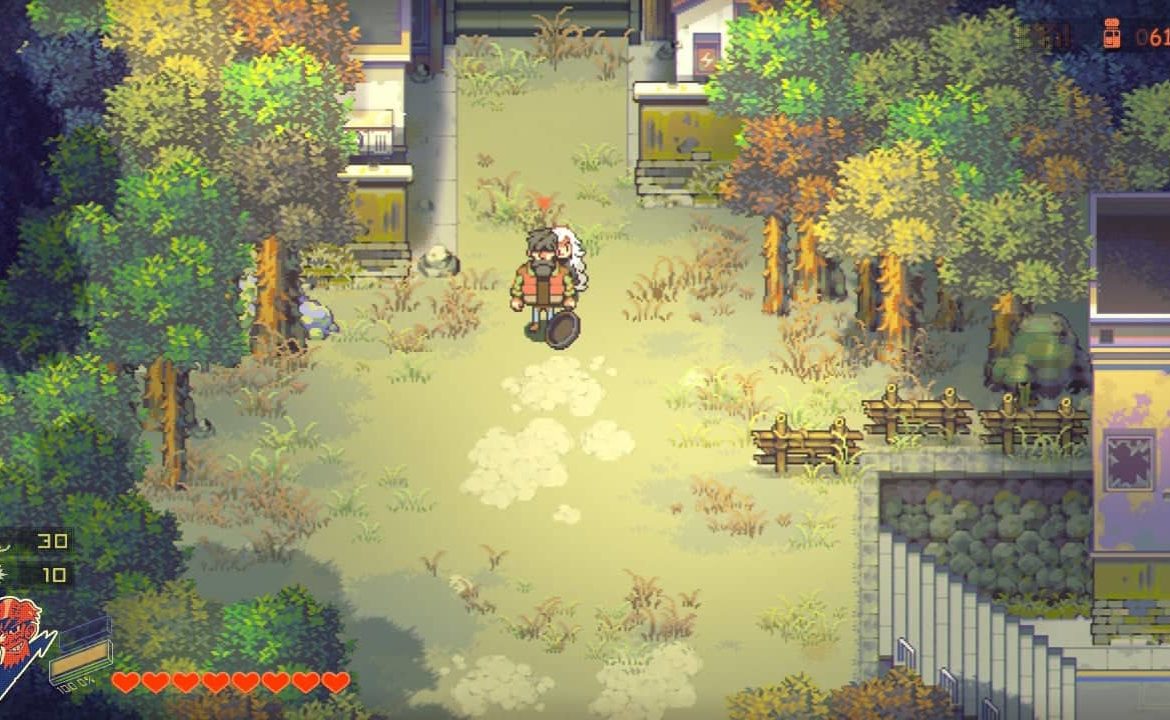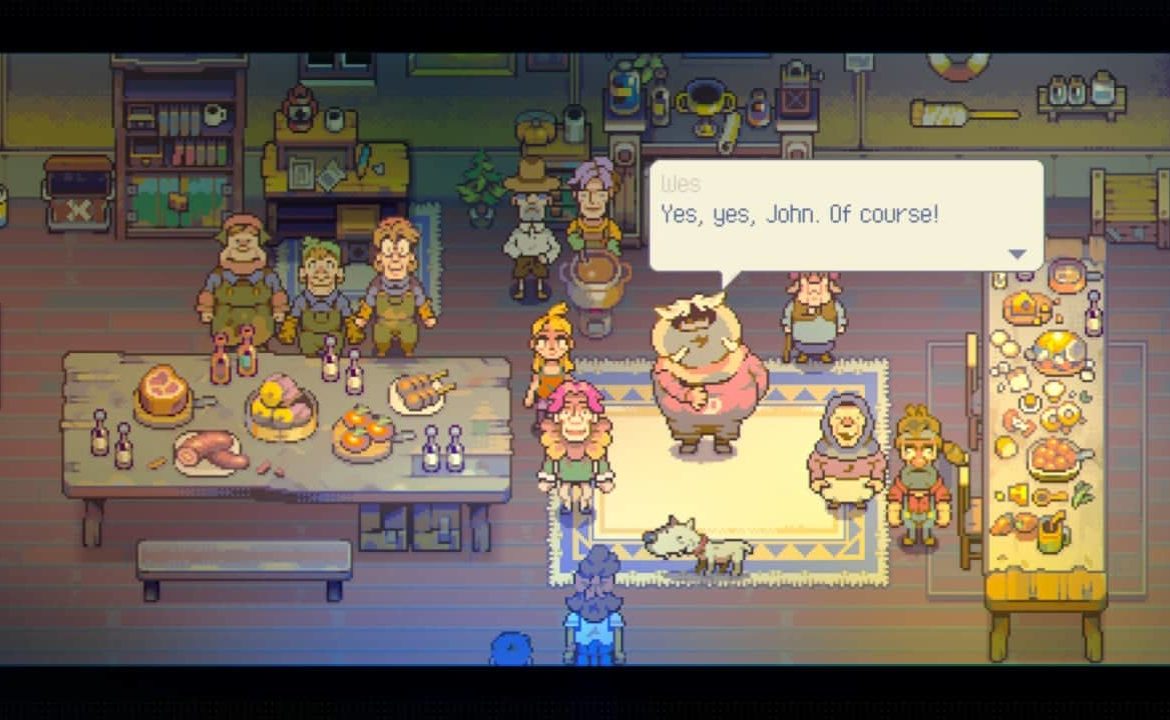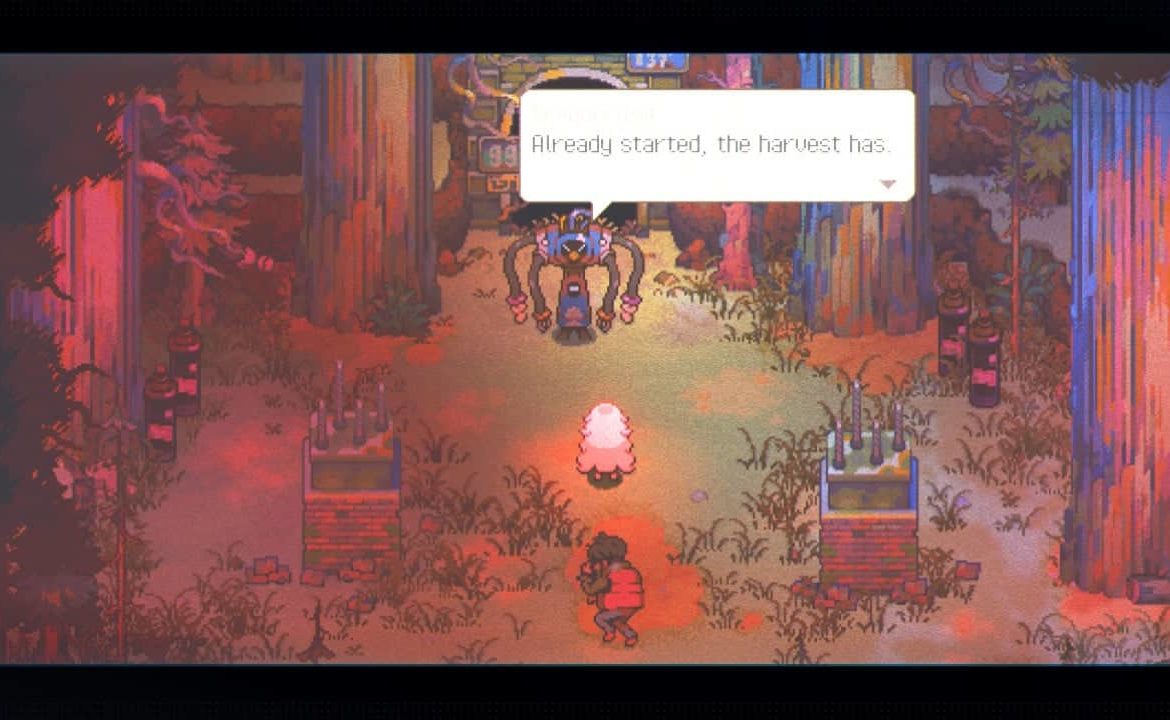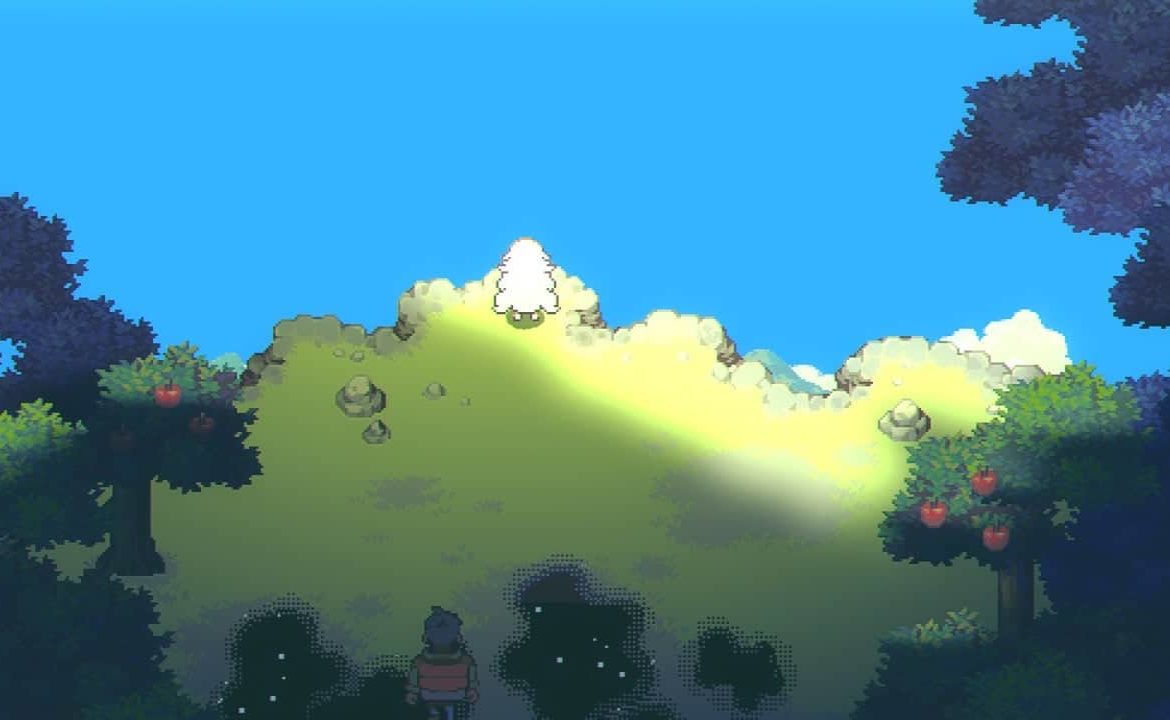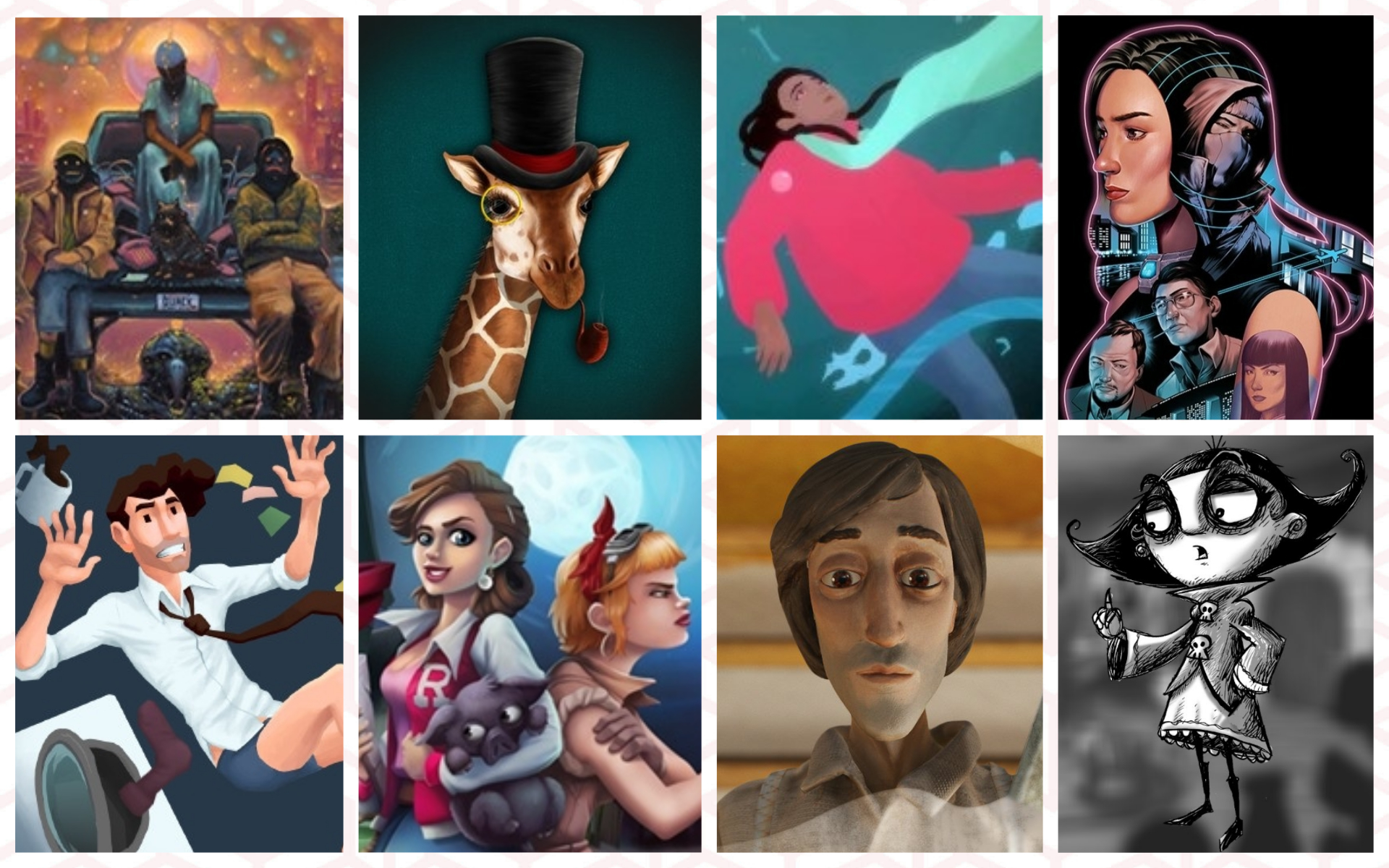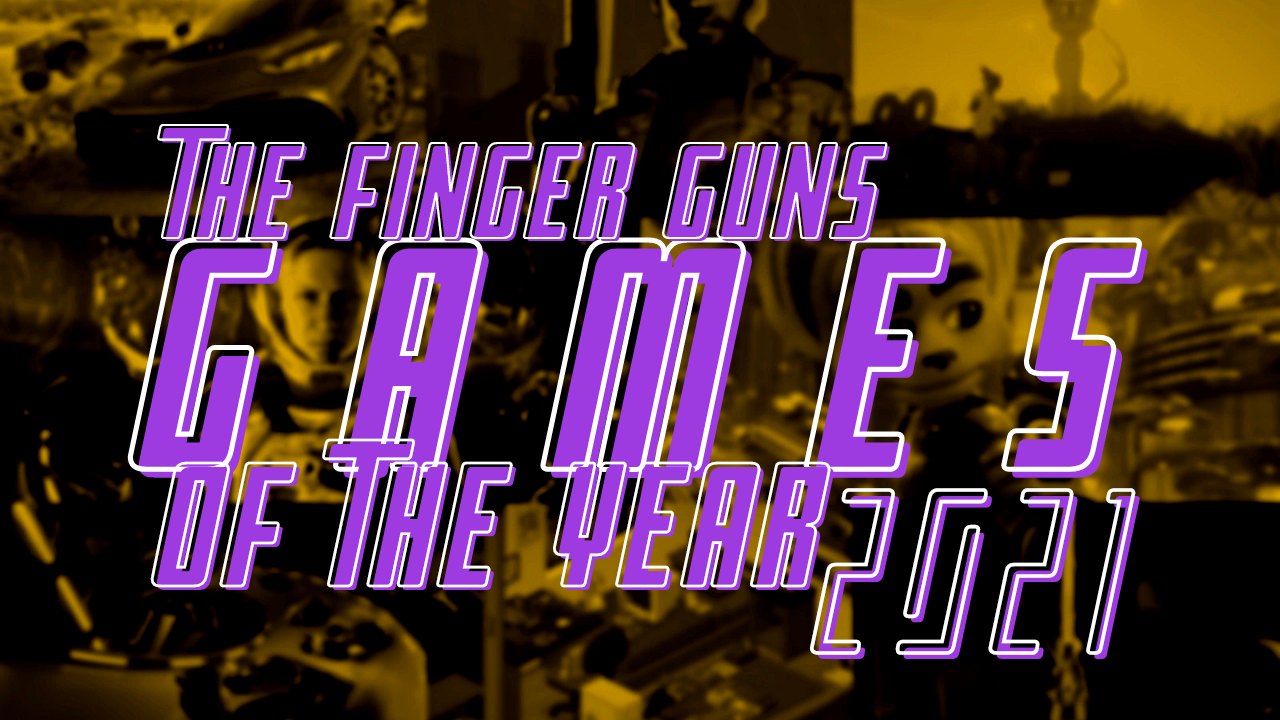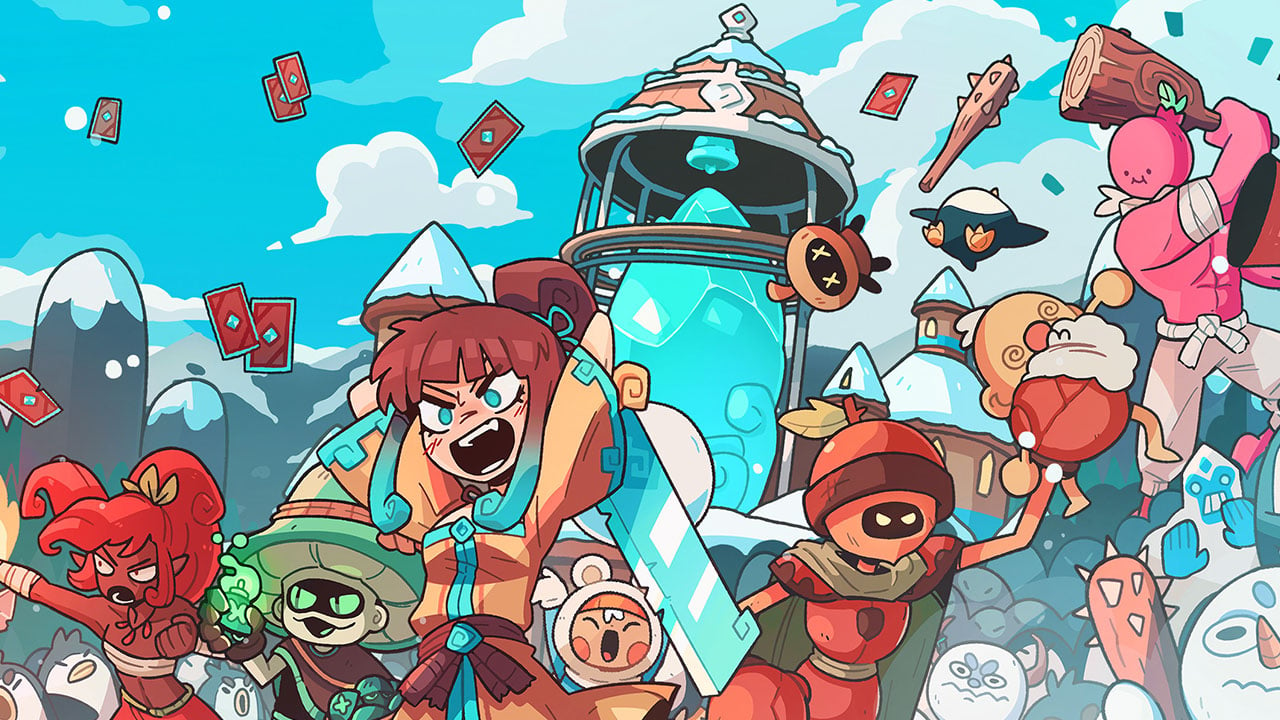Eastward Review (Switch) – Above Your Station
Long-awaited, delightful pixelart adventure Eastward is finally here. But is it all just shiny pixels, or is there substance at the end of the line? The Finger Guns Review.
Eastward to the uninitiated, is a little hard to pigeonhole. It’s an action RPG, but eschews most of the genre mechanics in favour of simple Zelda-type combat. It’s an epic adventure, but one that doesn’t rely on a large party, instead framing itself much closer to The Last Of Us. Its two leads, John and Sam, are shoe-ins for Joel and Ellie respectively, but by way of a Japanese anime; John is a bearded stoic silent protagonist, proficient in frying pans and getting the job done; and his charge, Sam, is essentially a magical girl anime trope, full of boundless energy and curiosity. Like Ellie she has a destiny – the opening movie shows John finding her in a pod, and it’s clear even in the opening chapters that there is plenty afoot that involves the little energy child more than anyone could suspect.
One Track Mind
The story starts in Potcrock Isle, but don’t be fooled by its name; it’s an underground Fallout-type bunker town that resembles an old train station. Ruled over by a tyrant mayor, no one is allowed to even mention the world above let alone leave. Sam lives with John who takes care of her as her guardian, but when they venture through the Ancient Ruins (an abandoned shopping centre above the station) they find the way out of their tiny world. There is a sky outside. However, with their new knowledge, they are now a threat to the town and are banished, thrown on a train going Eastward from which no one ever returns.
This is not much of a punishment, and so begins their adventure, riding the rails from town to town, exploring a post-apocalyptic world. They get embroiled in each town’s story, helping out and making friends, but also encountering and investigating the sinister miasma – a black fog that rolls across the surface world and kills on contact. Seems maybe the mayor was protecting his town from something after all. As the miasma follows you and towns in your wake fall silent, there’s a sinister edge to things. Add in the slow build of clues about Sam’s pod-child origins and you’ve got the makings of a great little story.
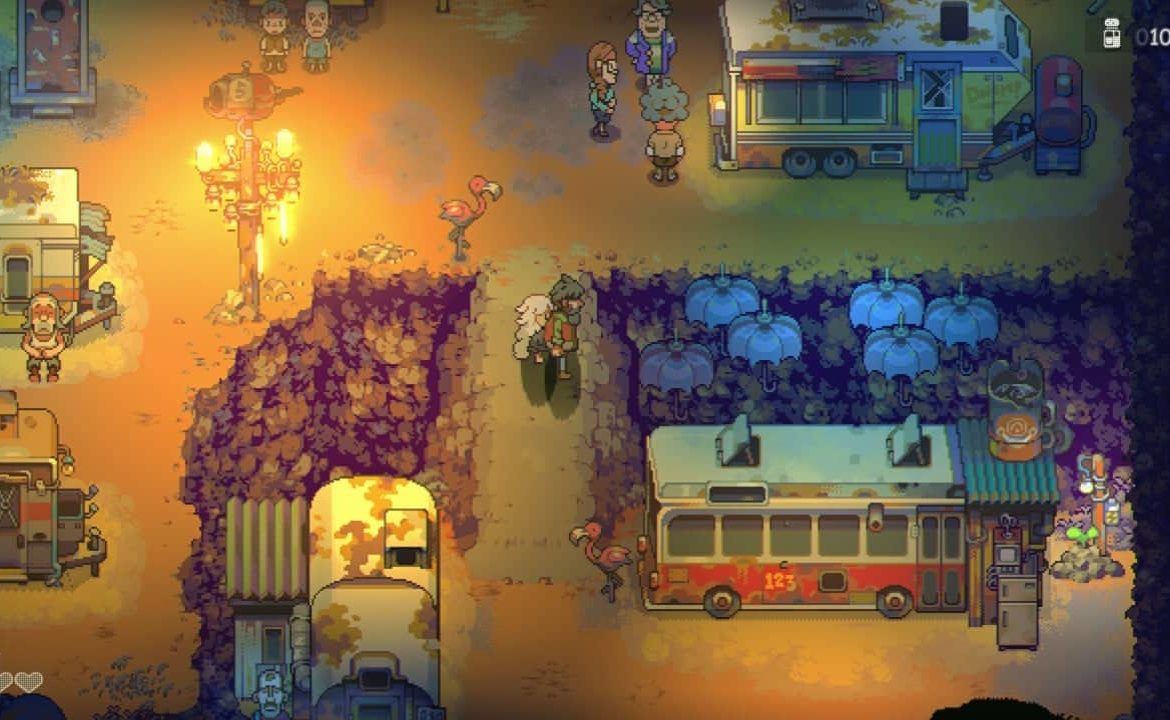
It’s cute, quirky, not afraid to spend plenty of time setting up characters just to move on to the next town and never see them again. It’s a pretty episodic framework by the time you get well into it, but there’s reasons for that I won’t go into here. But it’s the strength of the bond between John and Sam, the never-leave-each-other, do-or-die, you’ll-always-be-there-right love that really holds the whole thing together. There are episodes in certain towns that in a lesser game might be considered filler, but with Sam’s energy and joy permeating through, it never feels like that. They feel like lovable wholesome vignettes in a journey. What’s the saying? It’s not the destination that matters…
There’s far more to be seen by the end of some 5-6 chapters and around a 30-hour plot. An apocalyptic train ride across a world struggling to adapt to its newfound hardships, held together by the wonderous joy and tireless bond of Sam and John, Eastward draws you in almost effortlessly and keeps tight hold until the train has come to a complete stop.
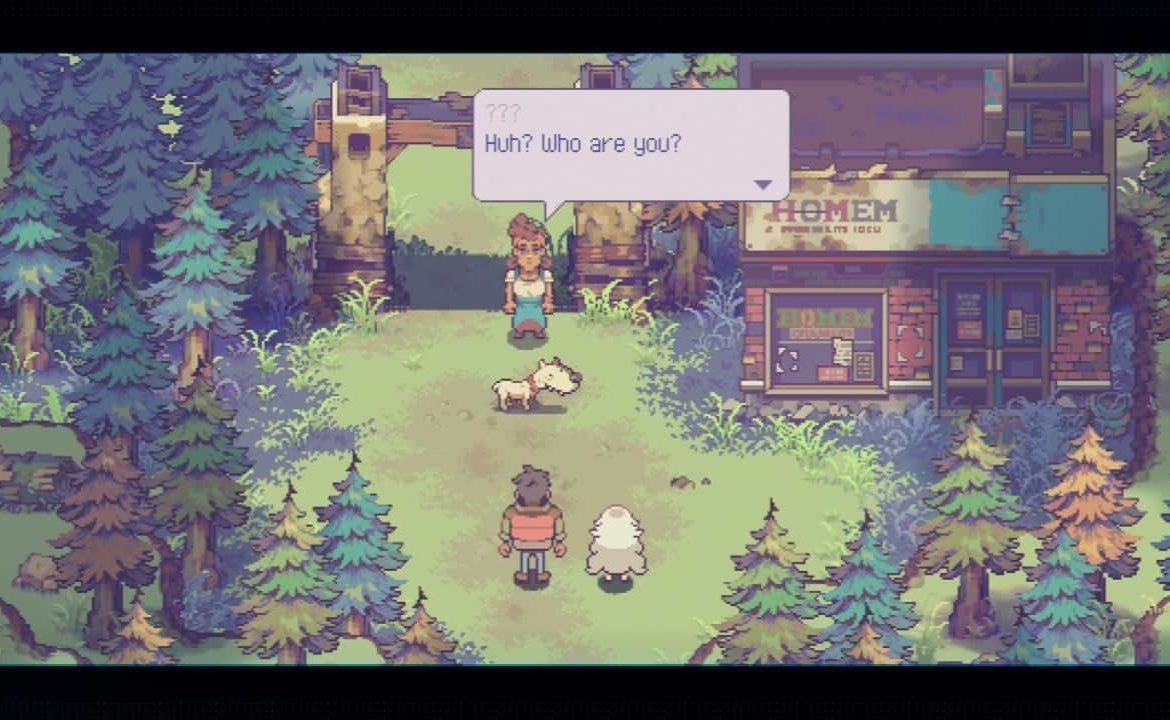
Ride the Rails
Armed with a frying pan (and later a little gun and flamethrower) for most of the game, John spends his time navigating dungeon-like areas, mostly in a relatively linear fashion, solving door, lock and sliding puzzles. You use your trusty frying pan to knock stuff around, and a number of mini-games are built around this – knocking seeds into a hole, or whacking flying pigs into their pen, or pushing off from raft points.
It’s apt that it’s a frying pan, because once he’s washed the monster blood and goop from the base, John can cook with it, and make a nice variety of health-point restoring dishes, which you can feast on mid-battle if need be. The cooking minigame is very simple but effective enough. I often find RPG’s overdo the cooking element in such a way that it becomes an annoying part of the game rather than a pleasant moment (I’m looking at you FF15).
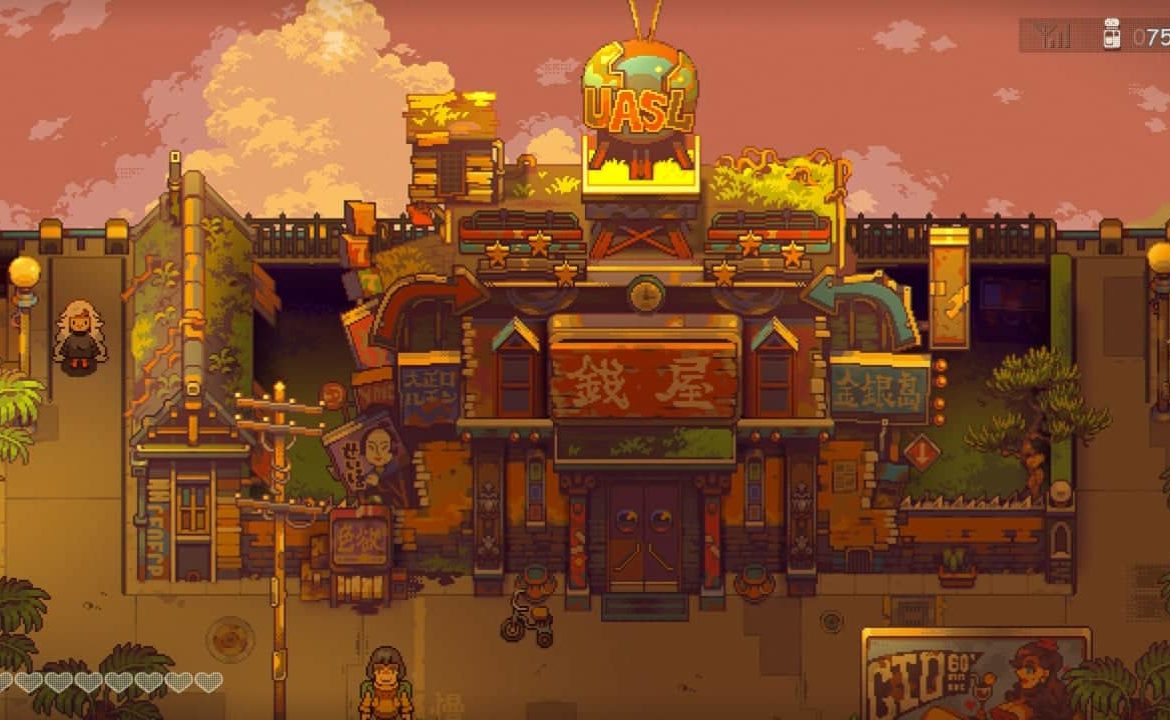
Eastward is a dungeon crawler but manages to hide it well. Dungeons feel like they are just part of the normal maze of getting through an area, rather than feeling like a delineated start and finish of a dungeon area. Mostly you control John to begin with, but things get really interesting when John and Sam split up (usually because Sam runs off). These sections then become dual puzzles, each of you helping the other out to get through in a kind of single player co-op session. John will whack the monsters while Sam steps on pressure pads to open doors for him, or Sam will clear plants with her magic while John traverses dangerous areas.
Combat is where Eastward most resembles a retro Zelda game, maybe Link to the Past for example. Enemies take a certain number of hits rather than having health bars or any numbers being involved. Eastward is an RPG, but there are no real stats to manage or a progression system as you might find in the type of RPG where you would level up. This is far closer to Zelda than your average Final Fantasy or Chrono Trigger, despite its looks. Because of this system, combat holds no real incentive beyond story progression, you will not gain levels, nor do you need to grind in any way. While that sounds good, for me this type of system incentivises rushing past enemies more often than not.
Just the Ticket
Just take a moment to appreciate the screenshots on this page. Aren’t they something? Eastward sports a style close to Chrono Trigger, but with smaller pixels, and therefore even more room for excellent animations. Locations look vibrant and seem to pulse with life, while avatars are just wonderfully expressive. Sam for example likes to run and jump and celebrate and each little animation is a joy to behold. Many of the denizens of the world have fun hairstyles or expansive eyebrows, and all have their own quirky movements.
It’s a beautiful game, taking the pixelart of its inspirations and bringing it up to the modern day while adding a real flair and considerably original feel to the designs. Long after I had all the screenshots I needed, I was still taking photos of beautiful locales and cities.
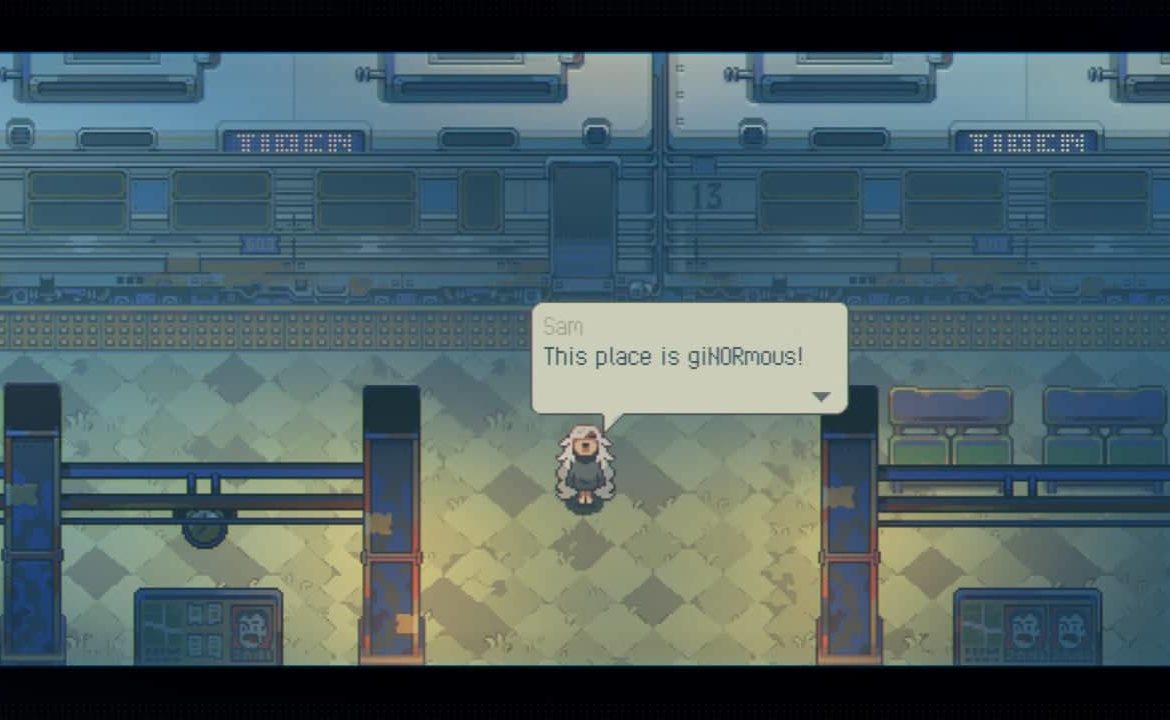
Eastward has no voiceover, and is generally a pretty quiet game – sounds are subtle for the most part, but used well, and all great on the ears. Considering Pixpil is a developer based in Shanghai and this is their first game, the localisation and English dialogue is exceptional.
Where it shines is its music. Taking cues from old Squaresoft RPGs like Chrono Trigger or Final Fantasy 6, the quirky soundtrack comes from Joel Corolitz (Death Stranding, Hohokum). It soars when needed picking at the emotional heartstrings, and then skips straight into more strange territory evoking the recurring character themes in those old RPGs. It’s filled with the type of chiptune that retro RPGs all used to have as standard, but as it’s a modern release you can hear the far more layered compositions. It’s a truly magical soundtrack, well worth a listen outside of the game itself, and has a number of lovely themes.
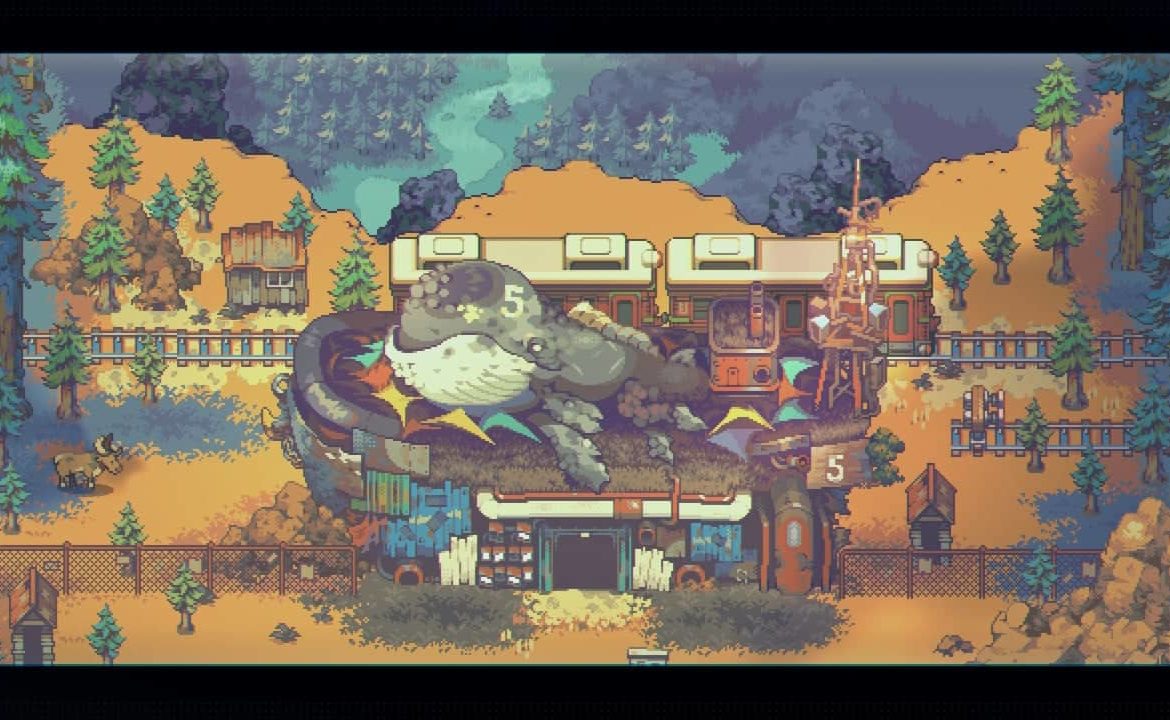
Eastward – Nice Touches
- Victory – Sam’s little victory dance whenever you win a boss, or get the key item, is beyond cute.
- Chilled – Save points in Eastward are sentient AI fridges – the internet of things after an apocalypse. They like to ruminate on the subject of memory before saving your latest on ice.
Much like FF8 with Triple Triad, or FF9 with Tetra Master, Eastward features a minigame that you can engage with in every town. It’s not cards, sorry. I made it sound like cards there, didn’t I? It’s a video game, within a video game – an old arcade box that has survived called Earthborn. All the kids play it and chat about it and Sam likes to get involved, being a strange pod-girl instead of a normal kid. You can boot up a machine in most towns and try to beat the game’s ultra-hard boss, the Demon King. Earthborn looks like a Dragon Quest 1, enemies facing the screen, that kind of setup. A note on Earthborn though – careful while playing – if you don’t have the AP for a move, you can get stuck in the action menu and not be able to exit. There is no cancel, or ‘back’ button on the arcade screen. Thankfully the autosave is pretty reliably just a screen or so earlier, and hopefully this small omission will be patched post-release.
Search Engine
Eastward is a joyful adventure to go on. It’s not the destination, but the journey that matters, and being along for the ride with such lovable characters as Sam and John is wonderful from start to finish. Their quirky story, the diverse range of characters they meet and interactions they have, feature some lovely dialogue, and will draw you along effortlessly in their wake. While the combat is simple and the area designs are firmly on the retro side of things, the art direction is beautiful to behold throughout this long and detailed RPG. It’s a retro, JRPG, magical-girl anime version of The Last of Us, and that’s really as wonderful as it sounds.
A post-apocalyptic action-adventure framed as a train journey through a cute heartfelt story of discovery, loyalty, and the bonds we form with others, Eastward shines like a diamond on the Switch. It’s wholesome, it’s original, it’s quirky, and it’s full of that special ingredient that turns a little indie into a must-play. Eastward’s graphics, narrative, and characters draw you in almost effortlessly and keep a tight hold until this train has come to a complete stop.

Eastward is available on 16th September 2021 on Nintendo Switch (reviewed), and PC via Steam.
Developer: Pixpil
Publisher: Chucklefish
Disclaimer: In order to complete this review, we were provided with a promotional copy of the game. For our full review policy, please go here.
If you enjoyed this article or any more of our content, please consider our Patreon.
Make sure to follow Finger Guns on our social channels –Twitter, Facebook, Twitch, Spotify or Apple Podcasts – to keep up to date on our news, reviews and features.
